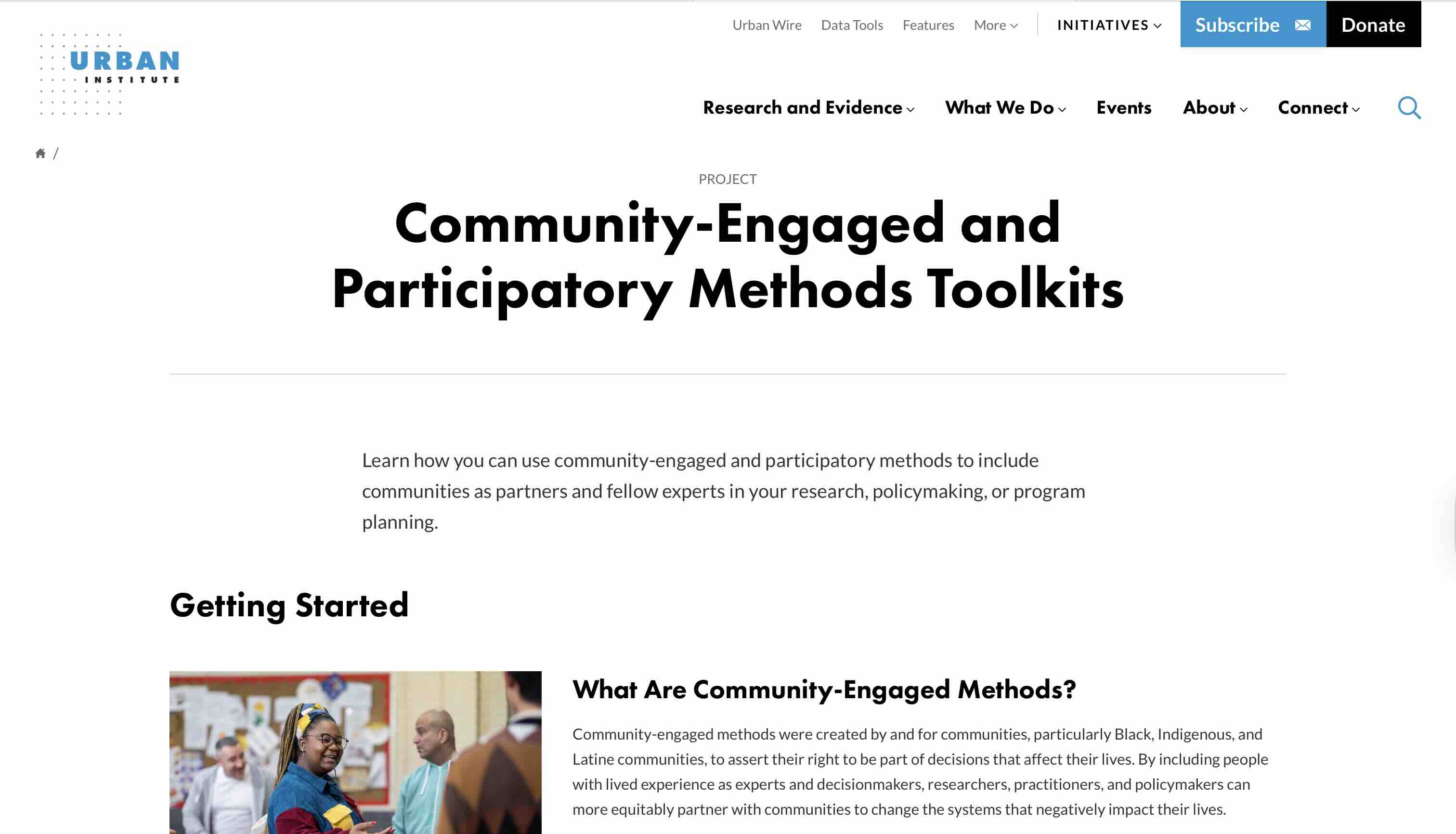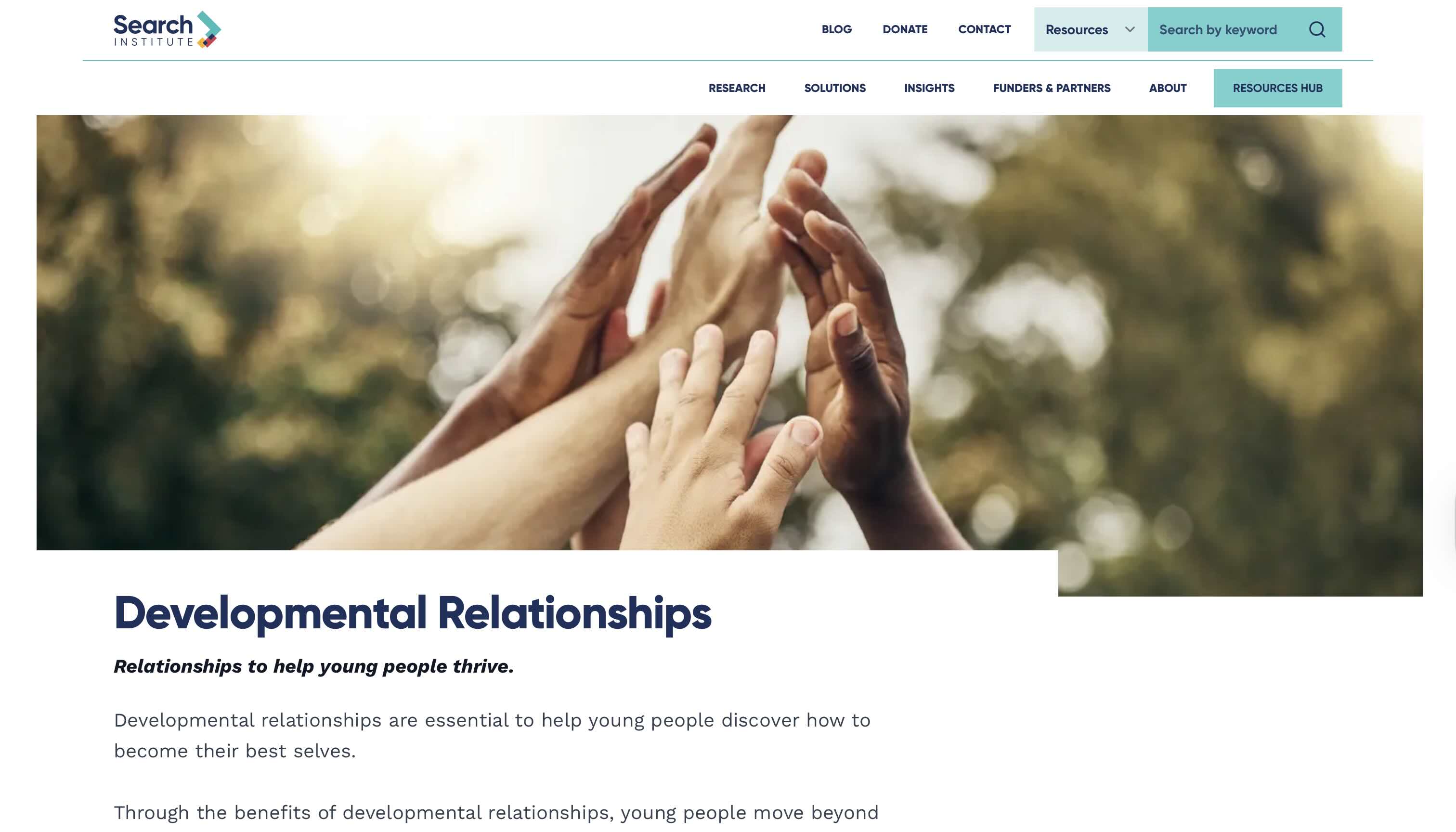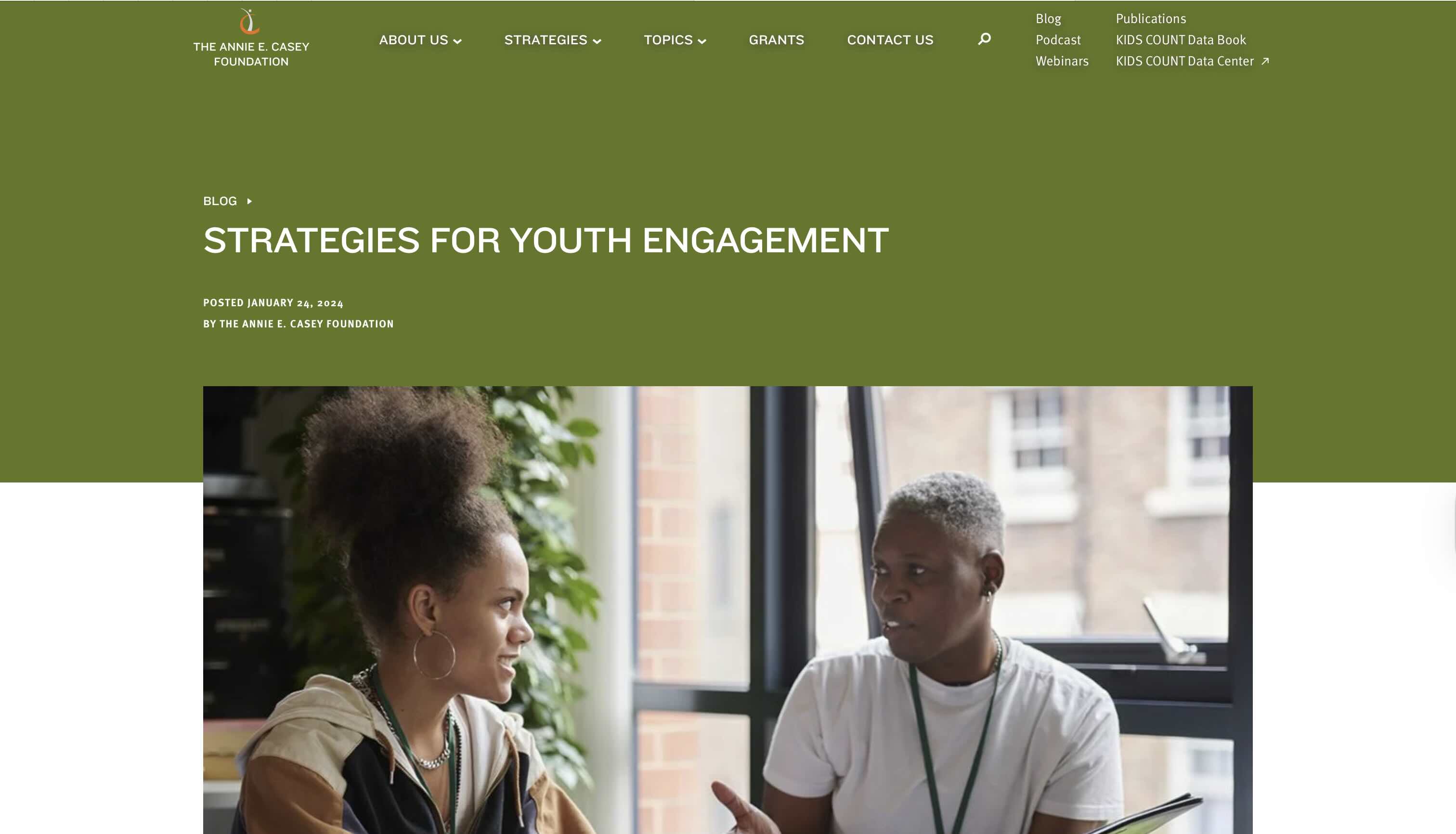Community Engagement
Community engagement involves collaborating with individuals, groups, or organizations to address shared concerns, solve problems, and enhance community well-being. It is a two-way interaction that builds relationships, fosters communication, and actively involves community members in decision-making. Community engagement can take various forms, such as public meetings, workshops, surveys, social media interactions, partnerships with local organizations, and other initiatives encouraging community members' participation and input. Community engagement creates a sense of ownership, empowerment, and shared responsibility among community members for the betterment of their collective environment.
Community engagement is vital to community change work. It empowers people to participate in decision-making, advocate for their needs, and collaborate on initiatives that address health disparities and promote well-being. Strong community engagement can lead to improved quality of life and greater resilience in the face of challenges. Communities with high levels of engagement are more likely to experience lower crime rates, better mental and physical health outcomes, and increased social cohesion. Additionally, engaged communities are more resilient in crises and demonstrate greater life satisfaction and overall well-being.
Community engagement in the U.S. has evolved through various historical movements, including Civil Rights activism, women’s suffrage, labor rights, and LGBTQ rights. These events have underscored the importance of grassroots organizing, collective action, and community empowerment in addressing social issues and driving positive change. Marginalized groups such as low-income communities, people of color, immigrants, LGBTQ+ individuals, individuals with disabilities, and rural communities have the most to gain through increased community engagement as these groups often face systematic barriers to participation and have historically been underrepresented in decision-making.
Although there are many successful community engagement initiatives across the country, challenges like unequal access to resources, systemic barriers to participation, and issues related to trust and transparency exist. It’s important to address these challenges and promote more inclusive, participatory approaches to community engagement. Equity challenges in community engagement often stem from power dynamics that privilege certain voices over others, cultural and linguistic barriers, and historical distrust of institutions. Additionally, gentrification, displacement, and economic inequality can further exacerbate community inequities and complicate efforts to foster meaningful engagement.
Community engagement fosters collaboration, trust, and accountability between institutions and the communities they serve, leading to more effective and equitable policy-making, resource allocation, and service delivery. Changemakers and stewards can influence community engagement by advocating for policies and practices prioritizing inclusivity, equity, and meaningful participation. They can also provide resources, training, and support to empower communities to organize, collaborate, and advocate for their needs. Ultimately, they can drive systemic change by dismantling barriers to engagement, amplifying marginalized voices, and fostering collaborative decision-making processes. At the local level, communities can host community meetings and forums to gain input. Leveraging technology such as social media, online platforms, and mobile apps can facilitate communication, outreach, and engagement. Lastly, providing resources, training, and support to community members can empower them to become more engaged.
Resources & Tools
The Changemaker's Guide: A Community Planning Curriculum
Resource - Guide/handbook
Published on 01/01/2014
Is Health Impact Assessment Effective in Bringing Community Perspectives to Public Decision-Making?: Lessons From 4 Case Studies in California
Resource - Policy Brief
Brought to you by Health Impact Project
A Scoping Review of Community Health Needs and Assets Assessment: Concepts, Rationale, Tools, and Uses
Resource - Journal Article
Brought to you by BMC
Using Data Walks To Spur Community Conversations Around the Realities of Food Insecurity
Resource - Blog
Brought to you by Urban Institute
The Community as a Full Partner: A New Model For Public Health
Resource - Journal Article
Brought to you by Health Affairs
Next Steps For Imagine Fox Cities
Resource - Blog
Brought to you by Community Foundation for the Fox Valley Region, Inc.
Leveraging Community Expertise to Advance Health Equity
Resource - Report
Brought to you by Urban Institute
Public Health Guidelines for Social Connection: Building Healthier Lives and Communities
Resource - Website/webpage
Brought to you by Canadian Alliance for Social Connection and Health
Conversation Guide: Social, Emotional, and Spiritual Renewal for Youth
Resource - Guide/handbook
Brought to you by Living Room Conversations
Guide to Equitable, Community-Driven Climate Preparedness Planning
Resource - Guide/handbook
Brought to you by Urban Sustainability Directors Network
Three Ways Public Libraries Support Socially Connected Communities
Resource - Blog
Brought to you by Healthy Places by Design
Three Essential Ways to Provide Support Community Rebuilding After Disasters
Resource - Blog
Brought to you by Peak Grantmaking Inc.
Addressing Cancer Disparities Through Community Engagement: Lessons and Best Practices
Resource - Journal Article
Evidence Library
Resource - Website/webpage
Brought to you by Canadian Alliance for Social Connection and Health
Cultivating a Healthier Policy Landscape: The Building Healthy Communities Initiative
Resource - Journal Article
Brought to you by SAGE Publications
Supporting Equitable Community Engagement
Resource - Guide/handbook
Brought to you by ChangeLab Solutions
Community-Based Models to Improve Maternal Health Outcomes and Promote Health Equity
Resource - Journal Article
Do No Harm Guide: Additional Perspectives on Data Equity
Resource - Report
Brought to you by Urban Institute
A Recipe for Meaningful Community Engagement
Resource - Guide/handbook
Brought to you by Health Leads
"Data Walk" Is a Key Tool in Results-Based Leadership
Resource - Blog
Brought to you by Annie E. Casey Foundation
Community Participation in Health Impact Assessments: A National Evaluation
Resource - Report
Brought to you by Health in Partnership
Data Walk - Population Health Innovation Lab
Resource - Website/webpage
Brought to you by Population Health Innovation Lab
Community-Driven Data and Evaluation Strategies to Transform Power and Place
Resource - Guide/handbook
Brought to you by Build Healthy Places Network
ARP Toolkit Guidance on Community Engagement
Resource - Guide/handbook
Brought to you by Community Commons
Engaging People with Lived Experience of Inequity: Relationship Building
Resource - Guide/handbook
Brought to you by IHI
(Re)Building Downtown: A Guidebook for Revitalization
Resource - Guide/handbook
Brought to you by Smart Growth America
Assessing Meaningful Community Engagement: A Conceptual Model to Advance Health Equity through Transformed Systems for Health
Resource
Brought to you by NAM
Published on 02/14/2022
Conversation Guide: Civic Renewal
Resource - Guide/handbook
Brought to you by Living Room Conversations
Listening to the Community's Input: A Guide to Primary Data Collection
Resource - Guide/handbook
Brought to you by WALHDAB
Identifying Community Assets and Resources
Resource - Guide/handbook
Brought to you by KU Center for Community Health and Development: Community Tool Box
Our Progression to a Future of Belonging: Identity, Targeted Universalism, and Building the Bridges to Tomorrow
Resource - Webinar
Brought to you by Othering and Belonging Institute
Case Study Repository
Resource - Data Bank/repository
Brought to you by Canadian Alliance for Social Connection and Health
Transformative Research Toolkit
Resource - Report
Brought to you by Othering and Belonging Institute
The Role of Business in Supporting Basic Needs for Health and Safety: Safety
Resource - Policy Brief
Brought to you by WIN Network
Published on 02/25/2021
Supporting a Community-Led Data Infrastructure To Build Local and Equitable Governance That Advances Policy
Resource
Brought to you by Brookings Institution
Crafting a Health Equity Centered Narrative
Resource - Report
Brought to you by Build Healthy Places Network
A Quick-Start Guide to Using Evidence-Based Policy at the Local-Level
Resource - Guide/handbook
Brought to you by CDC
Public Health Accreditation Board: Transformation Guide
Resource - Website/webpage
Brought to you by Public Health Accreditation Board
Action Guide for Building Socially Connected Communities
Resource - Guide/handbook
Brought to you by Foundation for Social Connection
A Playbook for New Rural Healthcare Partnership Models of Investment
Resource - Guide/handbook
Brought to you by Build Healthy Places Network
We Belong to the Earth and We Belong to Each Other: Connection, Climate, and Global Belonging
Resource - Webinar
Brought to you by Othering and Belonging Institute
Assessing Community Needs and Resources: Conducting Focus Groups
Resource
Brought to you by KU Center for Community Health and Development: Community Tool Box
A Transdisciplinary Approach Is Essential to Community-Based Research With American Indian Populations
Resource - Journal Article
Brought to you by Colorado School of Public Health
What’s Different When the Community Collects the Data?
Story - Written
Brought to you by Shelterforce
Commons Good Podcast: Annie Martinie and Maggie Richardson
Story - Audio
Brought to you by CI
Published on 12/13/2020
All-America City Award Finalists Stewardship in Action: Franklin, Tennessee
Story
-
 Original
Original
Brought to you by Community Commons
Published on 09/19/2020
Atlanta Regional Collaborative for Health Improvement (ARCHI), Atlanta, Georgia: Robyn Bussey, March 2017
Story - Written
Brought to you by 100MHL
All-America City Award Finalists Stewardship in Action: Muncie, Indiana
Story
-
 Original
Original
Brought to you by Community Initiatives
Published on 08/23/2020
This Pilot Project is Shaking Things Up at Public Meetings
Story - Written
Brought to you by Johns Hopkins University
Published on 04/26/2024
In a Rural Southwest Colorado Town, a New Program is Transforming Summer for Local Children
Story - Written
Brought to you by The Colorado Trust
Published on 07/10/2023
How to Spend ARPA Funds With an Equity Lens
Story - Written
Brought to you by National League of Cities
Published on 08/13/2021
Americans Are Volunteering Less Than Ever
Story - Written
Brought to you by Bloomberg L.P.
Published on 01/15/2024
All-America City Award Finalists Stewardship in Action: Pitt County, North Carolina
Story
-
 Original
Original
Brought to you by Community Commons
Published on 09/22/2020
All-America City Award Finalists: Stewardship in Action
Story
-
 Original
Original
Brought to you by Community Commons
American Rescue Plan in Action: Leveraging Flexible Funding and Community Engagement for Equitable Recovery
Story
-
 Original
Original
Brought to you by Community Commons
How Should Cities Spend Billions in Aid? Ask People Who Live There
Story - Written
Brought to you by CityLab
Published on 08/05/2021
Centering Community Voice: Stories of Lived Experiences
Story - Video
Brought to you by Georgia Health Policy Center
Bringing the Vital Conditions to Life: Belonging & Civic Muscle
Story
-
 Original
Original
Brought to you by Community Commons
All-America City Award Finalists Stewardship in Action: Rancho Cucamonga, California
Story
-
 Original
Original
Brought to you by Community Commons
Published on 09/20/2020
Related Topics













.jpg)
















































































































































